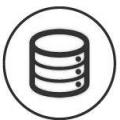This hands on workshop builds on part 2 by introducing the basics of Python's scikit-learn package to implement unsupervised text analysis methods. This workshop will cover a) vectorization and Document Term Matrices, b) weighting (tf-idf), and c) uncovering patterns using topic modeling.
Sign up for our weekly newsletter!
This is an archive of our past training offerings. We are looking to include workshops on topics not yet covered here. Is there something not currently on the list? Send us a proposal.
This four-part, interactive workshop series is your complete introduction to programming Python for people with little or no previous programming experience. By the end of the series, you will be able to apply your knowledge of basic principles of programming and data manipulation to a real-world social science application.
Part 3 Topics:
This workshop is the first part of a two-part series on survey sampling. This first workshop will cover the basic principles and methods of sampling. Topics will include a discussion of the various types of samples, the creation of sampling frames, the use of stratification, and basic methods of selecting samples.
R FUN!damentals Part 4: For-loops and Functions
Students will learn how to write for-loops and functions in R. You will learn how to personalize functions via control structures such as ‘if’ and ‘else’. These learning objectives will be exemplified through introduction to the construction and graphical representation of Monte Carlo resampling simulation.
Please note: This is a three-part workshop series. The first session will occur Monday, October 2 from 1:00-4:00pm. The second session will occur Monday, October 9 from 1:00-4:00pm. The third session will occur Monday, October 23 from 1:00-4:00pm.
This class will cover the basics of Excel, from simple formulas (SUM, COUNTIF) to more complex Excel features like Macros and the Data Analysis ToolPak. By the end of both sections, students will be able to employ Excel skills to open source policy data sets. These skills are transferrable to any sector.
Topics Covered Will Include:
This three-part series will cover the following materials:
Part 1: Introduction
Geospatial data are an important component of social science and humanities data visualization and analysis. The R programming language is a great platform for exploring these data and integrating them into your research.
Geospatial Data in R Part 1: Getting started with spatial data objects
Drupal is a powerful open source content management system that provides a flexible platform for web-based digital research projects, no programming required. If your project involves a database, or complex analytical relationships between texts, objects, and/or images, Drupal offers many options for organizing and displaying that material.
This interactive workshop will discuss how to analyze qualitative data, including how to develop codes, look for patterns, answer research questions, and build an argument. Researchers at any stage in the qualitative research process are welcome. If you have already collected data, you are encouraged to bring it, as there will be opportunities to practice the strategies discussed.
This hands on workshop goes through the common “preprocessing recipe” that is used as the foundation for a variety of other applications as well as some basic natural language processing techniques. These include: a) digitization (utf 8), b) removal of stopwords, numbers, punctuation, c) tokenization, d) calculation of word frequencies / proportions, e) part of speech tagging, and f) concordan
Join Ann Rose, from QSR International, as she facilitates an informal gathering of Berkeley researchers to view a demonstration of NVivo software, ask questions, provide feedback as to their needs for qualitative and mixed-methods research software, and connect with other NVivo users on campus.
This four-part, interactive workshop series is your complete introduction to programming Python for people with little or no previous programming experience. By the end of the series, you will be able to apply your knowledge of basic principles of programming and data manipulation to a real-world social science application.
Part 2 Topics:
R FUN!damentals Part 3: Data Exploration and Analysis
Students will be introduced to data exploration and analysis in R. You will learn how to summarize data and explore it with histograms, scatterplots, and boxplots. You will also be introduced to coding statistical data analysis via t-tests, analyses of variance, correlation, and linear regression.
This three-part series will cover the following materials:
Part 1: Introduction
This workshop outlines how to organize and then code qualitative research materials in ATLAS.ti. Attendees will first discuss the decisions to make before importing text, audio, or video into the software program, and then review how to start a project, import documents, apply codes, and run initial analyses. There will be time for questions and answers at the end.
This non-technical workshop provides an overview of computational text analysis methods and tools. No experience in this area is expected or required. The goal is to provide an orientation for those wishing to go further with text analysis and interpret results of these methods.
This workshop will introduce two different web platforms for exploring and mapping U.S. demographic data: SimplyAnalytics and PolicyMap. While there is some overlap between the different applications, each has its own strengths and unique features. For each platform we will walk through a short demo, followed by some time to explore the data and visualization tools that each platform offers.
This four-part, interactive workshop series is your complete introduction to programming Python for people with little or no previous programming experience. By the end of the series, you will be able to apply your knowledge of basic principles of programming and data manipulation to a real-world social science application.
Part 1 Topics:
R FUN!damentals Part 2: Subsetting and Reshaping





